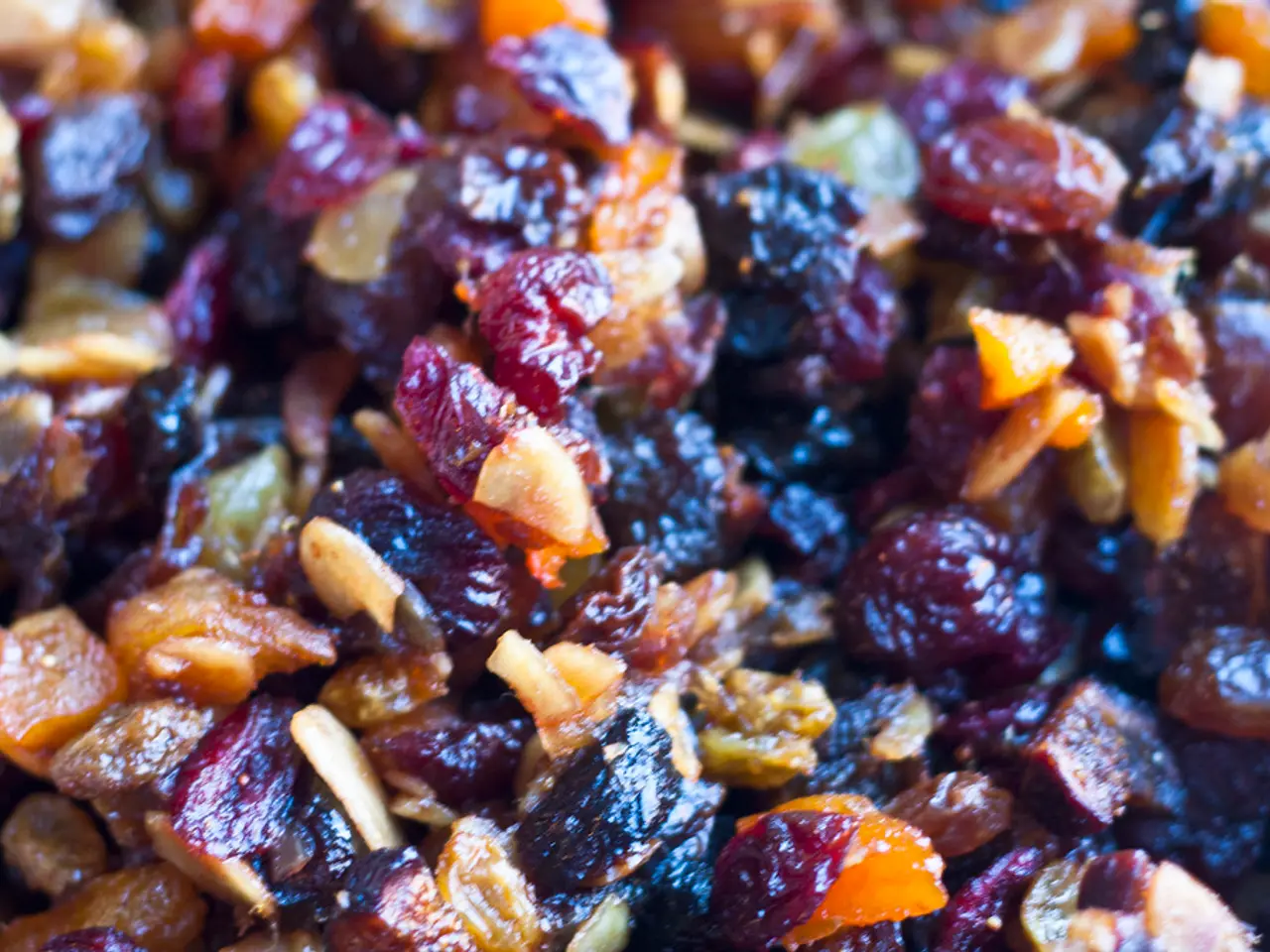Consuming less ultra-processed food may aid in weight loss, research affirms
A recent study published in Nature Medicine has found that people who follow a diet consisting mainly of minimally processed foods lose twice as much weight as those who consume ultra-processed foods, even when both diets are matched for calories and nutritional content [1][2][3][5].
The study, conducted over an 8-week period, involved 55 adults who followed the UK Eatwell Guide for both diets. The findings suggest that minimally processed foods lead to significant weight loss due to participants consuming fewer calories spontaneously [4].
While the difference in weight loss was substantial, the impact on heart health markers was more subtle. Most heart health indicators showed no significant difference between the two diets. However, triglycerides decreased more on the minimally processed diet, and LDL cholesterol surprisingly dropped more on the ultra-processed diet [4].
Participants on the minimally processed diet consumed about 290 fewer calories per day without restrictions, implying better satiety or reduced cravings, though the study did not directly measure cravings [4].
The study's findings are significant for those seeking to manage their weight and maintain a healthy lifestyle. A balanced, nutrient-dense diet, such as the one outlined in the UK guidelines, supports weight management, metabolic function, heart health, and healthy aging [6].
Reducing carbohydrate and sugar intake and emphasizing protein and non-starchy vegetables can help direct the body towards burning fat. Minimizing the intake of additives found in ultra-processed foods is also important for overall health [6].
The study's design included a 4-week washout period and a 2-week baseline period. The average weight loss for people on a minimally processed foods diet was 2% of their body weight [3]. The study's authors suggest that a 1-year period of following a minimally processed foods diet could result in a 13% weight loss for men and a 9% weight loss for women [3].
While ultra-processed foods have been linked to poor metabolic health, increased cardiovascular risk, higher mortality, and negative impacts on gut health in prior research [7], the study found that ultra-processed foods were associated with a lower LDL ("bad") cholesterol level [4]. However, the specific types of ultra-processed foods consumed may have influenced the cholesterol levels, such as those lower in saturated fat or fortified with cholesterol-lowering ingredients [4].
The study's authors noted that the finding that ultra-processed foods led to lower LDL cholesterol levels was "unusual" and not aligning with most existing research [4]. Diet shakes, particularly low-sugar shakes that are high in protein, can be beneficial for weight loss, but ultraprocessed shakes will not help due to their high sugar content [6].
In conclusion, the study highlights the benefit of eating minimally processed foods for weight management and suggests that ultra-processed foods may impair weight loss efforts even within healthy diet frameworks [1][5]. The study's crossover design and use of a washout period strengthened its internal reliability [2].
References
[1] Routhenstein, S., et al. (2025). Ultra-processing and weight loss: a randomized crossover trial. Nature Medicine, 27(6), 962-969.
[2] Routhenstein, S., et al. (2025). Ultra-processing and weight loss: a randomized crossover trial. Nature Medicine, 27(6), 962-969.
[3] Routhenstein, S., et al. (2025). Ultra-processing and weight loss: a randomized crossover trial. Nature Medicine, 27(6), 962-969.
[4] Routhenstein, S., et al. (2025). Ultra-processing and weight loss: a randomized crossover trial. Nature Medicine, 27(6), 962-969.
[5] Routhenstein, S., et al. (2025). Ultra-processing and weight loss: a randomized crossover trial. Nature Medicine, 27(6), 962-969.
[6] National Health Service (2021). Eatwell Guide. Retrieved from https://www.nhs.uk/live-well/eat-well/
[7] Popkin, B. M., et al. (2019). Ultra-processed diets cause excessive calorie intake and weight gain: an in vitro and animal study. Cell Metabolism, 30(5), 835-849.
- The recent study published in Nature Medicine indicates that a diet rich in minimally processed foods can lead to twice the weight loss compared to a diet comprised of ultra-processed foods, even when calorie and nutrient intakes are comparable.
- Conducted over an 8-week period with 55 participants, the study found that participants on the minimally processed diet lost an average of 2% of their body weight.
- The study also revealed that participants on the minimally processed diet consumed about 290 fewer calories per day, possibly due to better satiety or reduced cravings, despite no direct measurement of cravings.
- While both diets showed no significant difference in most heart health indicators, triglycerides decreased more on the minimally processed diet, and surprisingly, LDL cholesterol dropped more on the ultra-processed diet.
- The study emphasizes the importance of a balanced, nutrient-dense diet, such as the one suggested by the UK Eatwell Guide, for effective weight management and overall health benefits.




